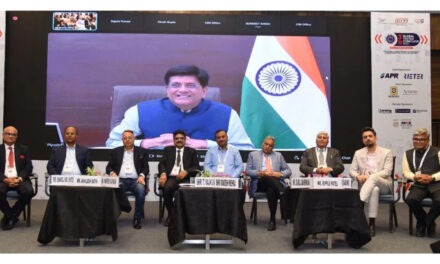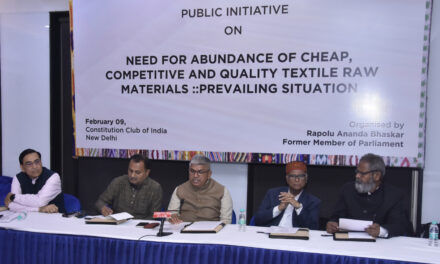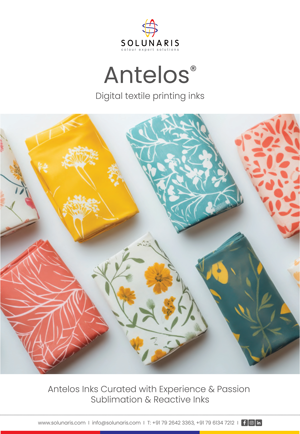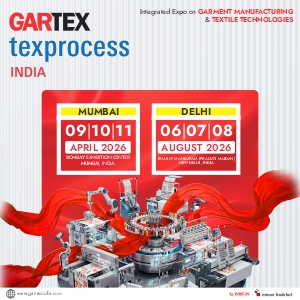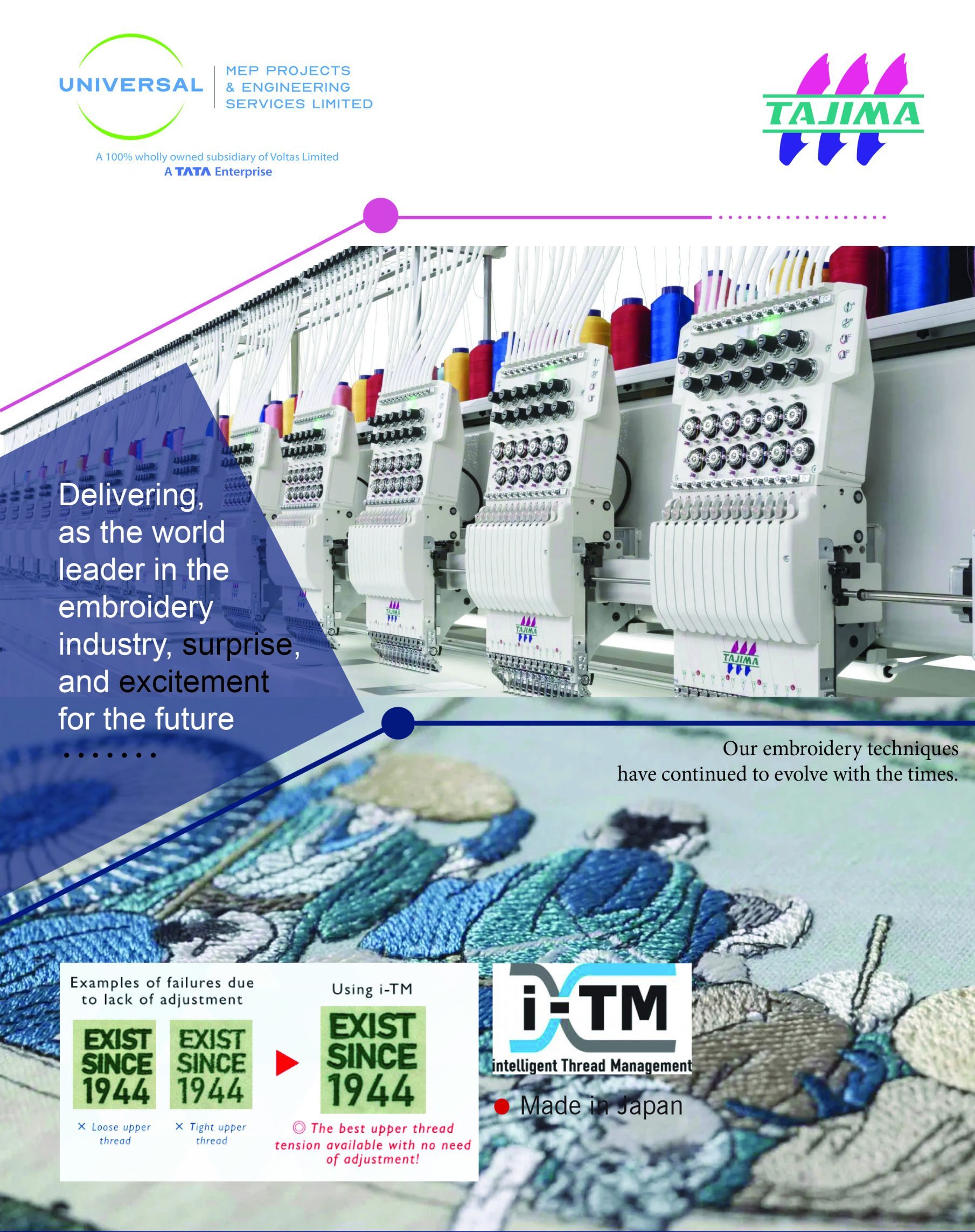 Representatives from the South Gujarat Chamber of Commerce and Industry (SGCCI) have petitioned Union Heavy Industries Minister H.D. Kumaraswamy and ministry officials in New Delhi to remove the Quality Control Order (QCO) on textile machinery.
Representatives from the South Gujarat Chamber of Commerce and Industry (SGCCI) have petitioned Union Heavy Industries Minister H.D. Kumaraswamy and ministry officials in New Delhi to remove the Quality Control Order (QCO) on textile machinery.
The chamber argues that the regulation will negatively impact industrial growth in South Gujarat. The SGCCI delegation highlighted the textile sector’s substantial economic potential, noting that the current market size of USD 165 billion is projected to reach USD 350 billion by 2030.
To achieve this growth trajectory, the industry will require approximately 450,000 high-speed weaving machines, representing a USD 15 billion machinery investment. Chamber representatives provided the ministry with a list of essential machinery not currently manufactured in India, emphasising the sector’s dependence on imports.
SGCCI Vice-President-elect Ashok Jirawala addressed specific concerns regarding the embroidery sector, stating that each production unit operates multiple embroidery machines that require replacement every two to three years due to technological advances.
He noted that these specialised machines are not manufactured domestically, making the industry reliant on imported equipment. The chamber has requested exemption of embroidery machinery from the QCO requirements.
The representatives warned of immediate financial implications for textile entrepreneurs who have already committed to machinery purchases through letters of credit. They expressed concern that machines delivered after the August 28, 2025 deadline may face payment blockages and customs clearance issues at ports.
This situation creates a dual challenge for business owners, who face both frozen capital and difficulty securing bank financing for new weaving projects due to the continued need for imported modern machinery.
The SGCCI has called for renewed consultation with industry stakeholders before implementing the QCO on textile machinery, arguing that user industries should have input in regulatory decisions affecting their operations.



